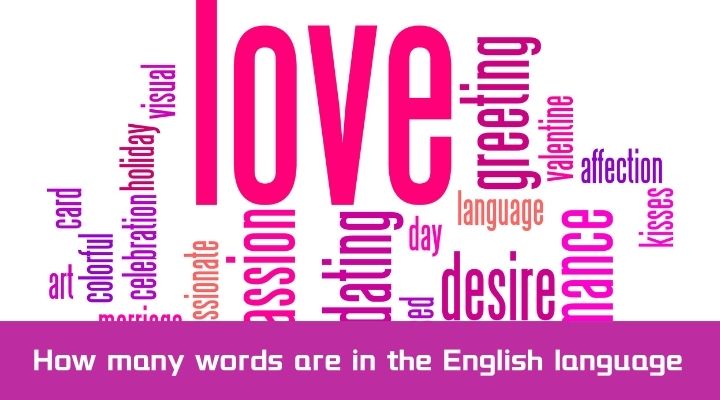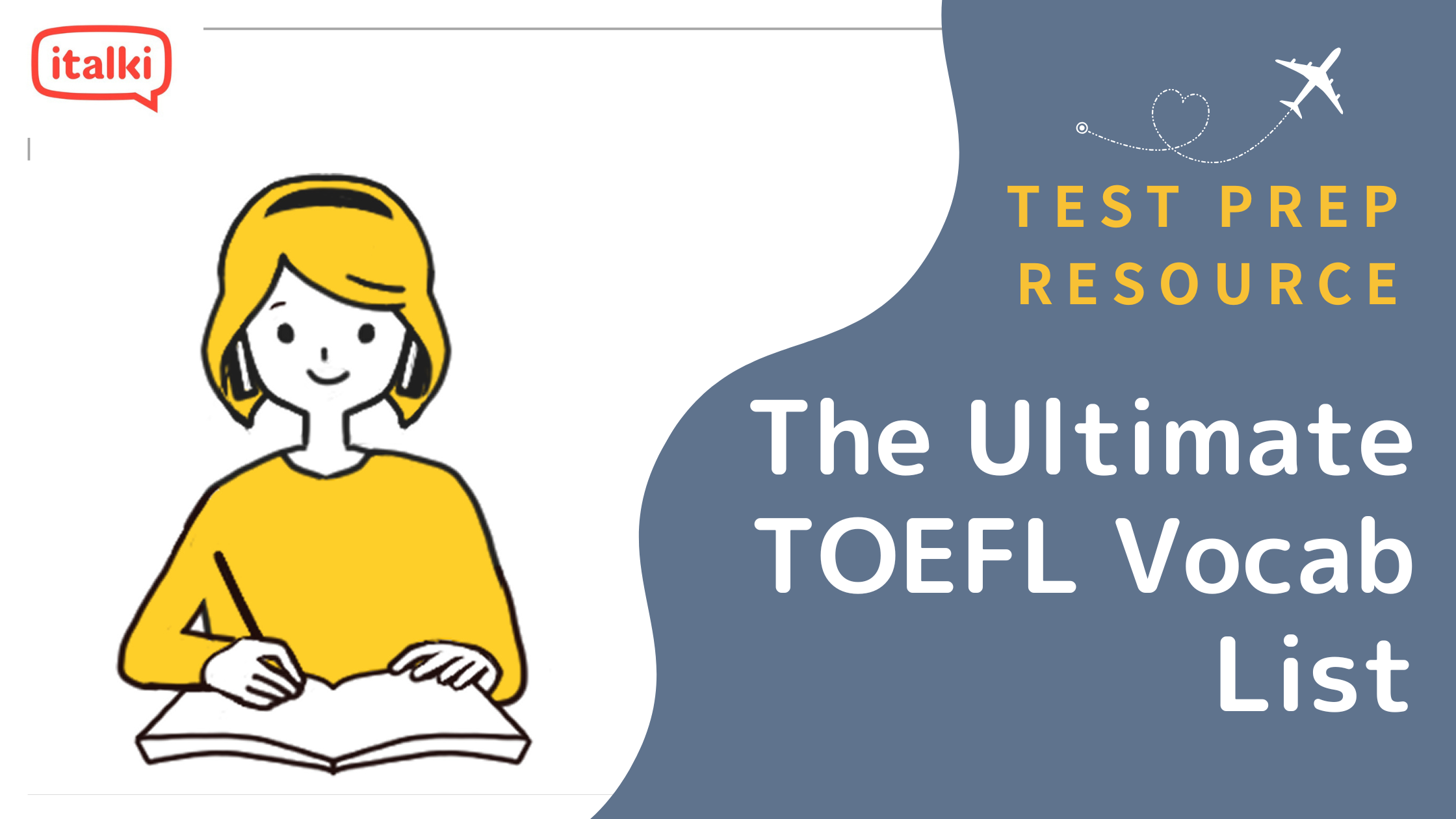Being an English learner, it is a natural urge to find out how many words are there in the English language. The exact answer to this question is quite difficult to find out but you can undergo a rough estimation to analyze this curiosity.
The English language has more than a million words, according to many experts. In reality, according to 2010 research from Harvard University and Google, there are 1,022,000 English words, and that number is expected to rise by about 8,500 each year.
It is very important to keep in mind that this contains various kinds of identical words when you see a large number like this. It also contains a large number of words that could be considered archaic. In other words, expressions that are no longer used in English today.
About 600,000 words in the English language are defined in the Oxford English dictionary. Once more, this contains a number of archaic words that are no longer commonly used. This dictionary grows every year to keep up with new terms developed to explain new information around us or to add new meaning to significant words already existing in English.

The 171,476 words currently used to describe individuals in particular professions represent a very different number from the one found in the Oxford English dictionary. These words aren’t exactly the same in the entire dictionary. These are related to people’s occupations, qualifications, and interests.
Determining what constitutes English is also challenging. Full definitions are provided for 47,156 out-of-date words and 171,476 currently used words in the 1989 edition of the Oxford English Thesaurus. This could be subdivided into 9,500 additional words. Most of these words (over 50%) are nouns, with about a quarter being adjectives and verbs as well.
The remaining words include exclamations, mixtures, prepositions, suffixes, and other words. In any case, there are now more than a quarter million new words in English and more than half a million new words globally. The total might resemble three-quarters of a million if there were a more precise way to count. There are several English dictionary apps that you can use to learn these words.

Vocabulary is continuously increasing
New words keep on emerging in the language all the time. Nobody could have predicted COVID-19 would become a defining phase of 2020 in 2019. However, this phrase is a permanent one. When you hear the word “Tweets” and all the words associated with this new terminology, that’s another novel idea. Old words fade away; we no longer speak in Shakespearean terms, for instance. The best way to improve English vocabulary is to make a comparison of the old and new words. Vocabulary building is an ongoing process for every language learner.

The origin of the English language
English is a Germanic language with a large vocabulary of German and Dutch words. They sound similar and have some basic structural and lexical similarities. There are some Germanic words that are frequently used in English, but more than half of the language’s vocabulary comes from Latin and French.

English has welcomed and been influenced by words from many different languages over the years, and it still contains words from many different languages today. About 80% of all words in the English language are those. We have many words in English that come from different languages.
Why can’t it be as easy as counting the words in a thesaurus, some people wonder? Unfortunately, there isn’t enough room in the thesaurus. There are important terms in the thesaurus that many people mistake for partial words. Prefixes, suffixes in English, and other word types that are parts of words make up these partial words. These affixes are often not considered or categorized as words, but some of them can stand alone as words.
Additionally, thesaurus variations depend on the intended audience. For instance, a scientific thesaurus with those specific terms that only deal with forensics would undoubtedly be different from a student’s thesaurus for those who need to understand the fundamentals of a language.
That means that each thesaurus will contain a unique set of words, with some appearing in numerous dictionaries while others, particularly those that are overly technical, do not.
The advancement of digital technology has made it possible for us to collect phrases like never before. A corpus is yet another alternative approach to understanding the English language. In order to grammatically describe a complete set of specific etymological within a language, a corpus typically explains a significant or detailed collection of imaginative phrases. In other words, we have the option to read a variety of books from various genres online.

Test your language level
Are you ready to test your English skills? Whether you’re a beginner or an advanced learner, our test will help you gauge your strengths and areas for improvement. Don’t wait any longer, click now to take the test and see how well you know English.
Test Now
The vocabulary of an individual
It is safe to say that the person’s typical vocabulary is less extensive than the entire vocabulary of English words. There is simply no other way to recognize and utilize common English words.
The average 20-year-old English speaker uses about 42,000 words, according to some studies. Lexicographer Susie Dent estimated that while an English speaker may recognize about 40,000 words, they actively use 20,000 of them in a 2011 conference with the BBC.
Adults who speak English use between 20,000 and 30,000 words on average. The good news is that they probably use context cues to recognize additional words while reading. If you are an English learner and looking out for ways to improve your English vocabulary, get yourself enrolled in italki to learn English online.
With italki, you can learn at your own pace and improve your English vocabulary and pronunciation. The English teacher online will enable you to understand and learn English concepts and phrases in the comfort of your home. In fact, they will also provide you with some practical exposure to speaking English publicly.

Find Your Perfect Teacher
At italki, you can find your English tutor from all qualified and experienced teachers. Now experience the excellent language learning journey!
Book a trial lesson
Why choose italki?
Choosing italki as your language learning platform comes with several advantages that make it a popular choice among learners worldwide. Here are some compelling reasons to choose italki:
Variety of Teachers: italki offers a wide selection of qualified language teachers, allowing you to choose instructors based on their teaching style, experience, and background. This ensures you find a teacher who aligns with your learning preferences.
Flexible Schedule: You can schedule lessons at times that are convenient for you. This flexibility is especially beneficial for learners with busy schedules or those in different time zones.
Personalized Learning: Teachers on italki tailor lessons to your specific needs, whether you’re a beginner, intermediate, or advanced learner. Lessons can focus on grammar, conversation, vocabulary, or any aspect you want to improve.
One-on-One Interaction: One-on-one lessons offer focused attention from the teacher, giving you ample opportunity to practice speaking, receive feedback, and ask questions.
Affordable Options: italki offers various pricing options, allowing you to choose teachers within your budget. You can opt for trial lessons, regular lessons, or lesson packages based on your preferences.
Convenient Virtual Classroom: italki provides a virtual classroom equipped with tools for video calls, text chat, document sharing, and a whiteboard. This platform ensures a seamless and interactive learning experience.
Global Community: Interacting with teachers from different parts of the world exposes you to various accents, dialects, and cultural insights. It’s an enriching way to experience language and culture.
Real-Life Practice: Teachers often incorporate real-life scenarios and cultural insights into lessons, enabling you to apply language skills to practical situations.
Feedback and Progress Tracking: Regular feedback from your teacher helps you identify areas for improvement and track your progress over time.
Language Exchange: Apart from booking lessons, italki offers a language exchange community where you can connect with native speakers of the language you’re learning. This exchange can provide additional practice and insights.
Quality Assurance: italki reviews and verifies teachers’ credentials and qualifications, ensuring you learn from experienced professionals.
Accessible Learning: You can access italki from your computer, tablet, or smartphone, making it convenient to learn from anywhere.
Satisfaction Guarantee: If you’re not satisfied with your first lesson, italki offers a refund of the lesson credits you used.
Ultimately, italki empowers you to take charge of your language-learning journey by offering personalized instruction, cultural immersion, and the flexibility to learn at your own pace. It’s an engaging and effective way to develop your language skills, connect with people from around the world, and embrace the beauty of language and culture.
How to book English lessons on italki?
Booking English lessons on italki is a straightforward process that allows you to connect with experienced language teachers. Here’s a step-by-step guide:
Create an Account: If you don’t have an italki account, start by creating one. You can sign up using your email address or log in through your social media accounts.

Learn English on italki
Join the global community of language learners today! Sign up for italki and start improving your language skillswith native-speaking teachers from around the world.
Create an italki account
Search for English Teachers: Once logged in, navigate to the “Find a teacher” section or use the search bar to find English language teachers. You can filter results based on your preferences, such as location, price, availability, and teaching style.

Explore Teacher Profiles: Click on a teacher’s profile to learn more about their background, teaching experience, teaching style, and student reviews. This will help you find a teacher who suits your learning needs.
Check Availability: On the teacher’s profile, you’ll find their availability for lessons. Choose a time that works for you and matches the teacher’s schedule.

Select Lesson Type: Teachers typically offer different types of lessons, such as trial lessons, regular lessons, and packages. Choose the type that fits your preferences.
Book a Lesson: Click on the desired lesson type (e.g., trial lesson) and choose the duration of the lesson. You’ll be prompted to confirm the booking and proceed to payment.
Make Payment: Enter your payment details and confirm the booking. italki supports various payment methods, including credit/debit cards and PayPal.
Join the Lesson: Before the lesson’s scheduled time, ensure you have the necessary tools (webcam, microphone) and a stable internet connection. At the appointed time, access your italki account and go to the “My Lessons” section. There, you’ll find a link to start the lesson using the virtual classroom provided by italki.
Enjoy the Lesson: During the lesson, engage with your teacher, ask questions, practice speaking, and learn! Teachers often customize lessons to your level and goals.
Feedback and Next Steps: After the lesson, you can leave feedback for the teacher. If you enjoyed the lesson, you can continue booking additional lessons with the same teacher.
Remember that each teacher’s process might vary slightly, but these steps provide a general outline of how to book Spanish lessons on italki. italki’s platform is designed to make the process smooth and convenient, allowing you to connect with qualified teachers from around the world to enhance your Spanish language skills.
Frequently asked questions about words in English
Q. What are the 7 question words in English?
A. An interrogative word or question word is a function word used to ask a question, such as what, which, when, where, who, whom, whose, why, whether, and how. They are sometimes called wh-words because in English most of them start with wh- (compare Five Ws).
Q. What are the challenges in learning English vocabulary?
A. Pronunciation, Spelling, Slang and Colloquialisms, and fluency are some of the most common challenges.
Q. What is the best way to improve vocabulary in English?
A. Develop a reading habit, use the dictionary and thesaurus, play word games, use flashcards, and use mnemonics.
Conclusion
So, how many words are there in the English language altogether? The Corpus of Contemporary American English, which includes words from publications, TV shows, blogs, and many other sources, is one well-known corpus. However, they are all different spellings of the same word.
The Worldwide Language Display, which monitors language usage patterns, estimates that there are currently one million unique words in the English language. Do not panic with such a huge number. Go easy and start building your vocabulary gradually.
Use different resources such as developing a reading habit, using the dictionary and thesaurus, playing word games, using flashcards, and using mnemonics to boost your vocabulary set.
Want to learn a language at italki?
Here are the best resources for you!
Popular English lessons
- English speaking lessons
- English lessons for kids
- Business English lessons
- English grammar lessons
- IELTS lessons
- TOEFL lessons
- CPE lessons
- TOEIC lessons
- BEC lessons
- PET lessons
- ILEC lessons
- KET lessons
- FCE lessons
- CAE lessons
- Duolingo English test preparation lessons
People also learn



















